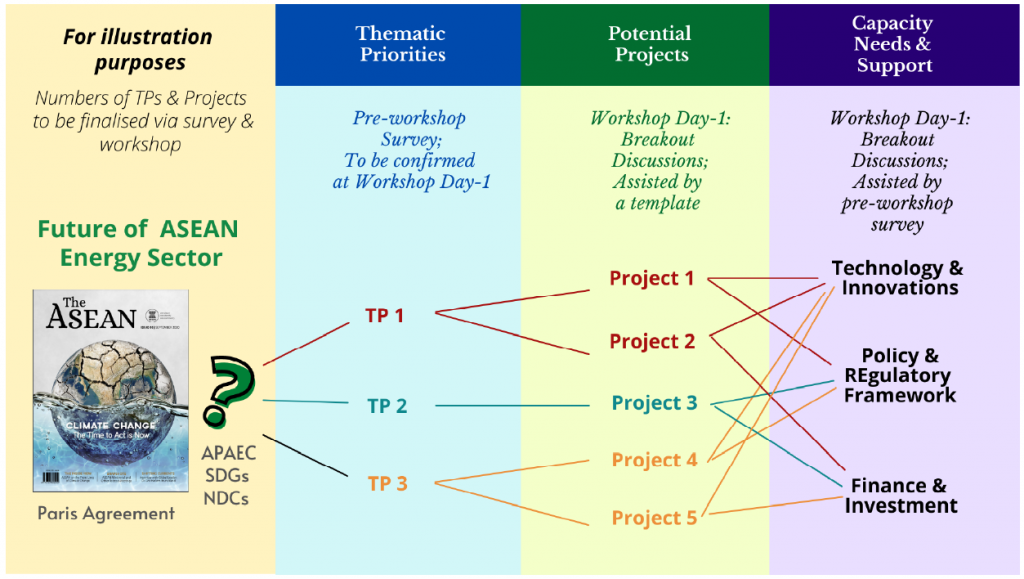Jakarta, 3-4 August 2021

According to the Global Climate Risk Index 2021, between 2000 and 2019, Myanmar, the Philippines and Thailand were the ASEAN countries among the top 10 countries that had the most affected by extreme weather events. In which, the total fatalities and losses of these three countries were over 8,000 and 12 billion US$ PPP, respectively. Other ASEAN countries like Cambodia, Indonesia and Vietnam were alarming, too. For instance, Cambodia ranked 14th for the long-term climate risk index; Indonesia ranked 14th for the average fatalities; Vietnam ranked 11th for the average losses due to extreme events.
With six countries seriously affected by extreme weather events, Southeast Asia is at risk of becoming one of the most vulnerable regions to climate change. These findings were consistent with the 2020 Annual Report of ASEAN Coordinating Centre for Humanitarian Assistance on disaster management (AHA Centre), whereby the number of disaster events in the ASEAN countries has been increasing and recorded a 264% rise in flood events in 2020 compared to 2019.
Nonetheless, climate change is a cross-sectoral global issue. Therefore, an integrated approach is crucial in tackling climate change effects. Regional integration through ASEAN cooperation is vital in building resilience to climate change in this region. By strengthening the capacity and sharing experiences and resources among the ASEAN member states (AMS) could be effective in addressing cross-sectoral issues.
Hence, it is crucial to identify the potential focus areas and projects that would fit the needs and supports of the AMS in addressing the energy-climate issues. ACE as the catalyst to strengthen the ASEAN Energy Cooperation; as a knowledge hub; a think tank for energy development is, therefore, could play its roles by recommending projects that could benefit the AMS. These include proposal development and seeking appropriate donors through the ASEAN secretariat. The current ACE’s organisation structure has the advantage of dealing with projects that need policy integration. A cross-departmental brainstorming session will provide constructive proposals that involve intellectual contributions from all departments. Such a session also will enable ACE to identify the constraints and limitations of its capacity for project implementation. Simultaneously, identifying the areas needed for capacity building. The involvement of all levels in developing the ideas for potential projects will also enhance the ownership perception among ACE’s employees.
Hence, two half-day workshops were conducted on the 3rd and 4th of August 2021 to brainstorm the potential focus areas and projects for the ASEAN energy sector in addressing energy-climate issues. The workshop was facilitated by Dr Hoyyen Chan from Invite Green Consultancy, and attended by 26 staff, including from the management.
(This reportage is taken from the workshop report, prepared by Dr Hoyyen Chan).
HC